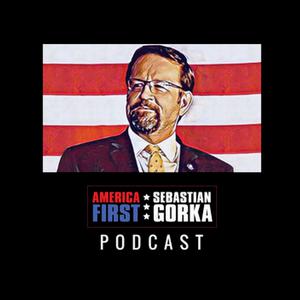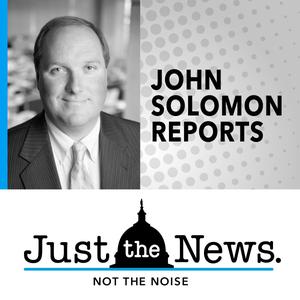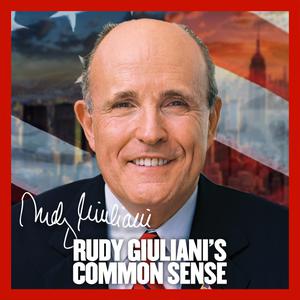
CrossroadsET
Joshua Philipp
- 1 hour 1 minuteAmerica Changes Overnight as Trump Issues Flurry of Orders
Overnight, the United States has changed. Immediately following his inauguration and speech, President Donald Trump signed a series of executive actions in front of a live audience at the Capital One Arena.
With cheers from the crowd, he ended a long list of policies from the former administration and issued new orders, before heading to the White House where he continued issuing executive actions while speaking with the press.
22 January 2025, 1:00 am - 59 minutes 22 secondsTrump’s Inauguration: 100 Executive Actions Ready to Go Starting on Day One
President Donald Trump is being sworn in as the 47th president of the United States today. With this, the political landscape could change globally, and we already have a general idea of what’s going to happen, given that Trump has detailed what he has in store for his first days in office. He reportedly has 100 executive actions ready to go starting on day one of his new administration.
21 January 2025, 1:00 am - 55 minutes 51 secondsTrump Announces Plan for Hollywood; SCOTUS Rules 9-0 on TikTok Ban
Hollywood hasn’t been doing so well. Many of the major planned blockbusters have fallen flat, and some have blamed this on things like social justice and other issues that have steered Hollywood more toward policies than toward creating good movies.
President-elect Donald Trump is now saying he hopes to create a new “Golden Age of Hollywood,” and to do this, he announced the appointment of actors Jon Voight, Mel Gibson, and Sylvester Stallone to become special ambassadors to Hollywood.
18 January 2025, 1:00 am - 1 hour 6 minutesWhy TikTok, RedNote and Tencent are Dangerous
TikTok may soon be banned in the United States due to its China ties, but some users are now migrating to a platform even more strongly linked to China’s communist regime. The case with TikTok is now in the hands of the Supreme Court, which is weighing the constitutionality of banning the video app unless its China-based owner, ByteDance, sells it off. It appears the ban is likely to be upheld, and some TikTok users have been jumping to another platform that’s even more Chinese—RedNote. Technically, the name is Xiaohongshu, which is Mandarin for “Little Red Book”—as in the teachings of former CCP leader Mao Zedong.
In other news, TikTok may be just the first of many such companies that could be forced to either sell or get banned in the United States. The U.S. Department of Defense recently listed Tencent as a Chinese military company, and this could also have broad implications for tech and entertainment. Tencent owns the messaging app WeChat and has also been buying up large swaths of companies in the video game market—including many of the most popular games currently available. With the new designation, and with the passage of some recent U.S. laws, Tencent could soon go the way of TikTok.
17 January 2025, 1:00 am - 1 hour 5 minutesTrump to Create ‘External Revenue Service’; Jack Smith Says He Had Enough Evidence on Trump
President-elect Donald Trump has announced his plan to create a new agency called the External Revenue Service. This is an inversion of the Internal Revenue Service (IRS), and, as the new agency’s name suggests, its focus will be on collecting money from outside the United States—including through the use of tariffs.
In other news, special counsel Jack Smith has officially left his position. The federal investigation and charges against Trump have now come to an end. But before leaving, part of Smith’s report on one case has been released to the public. In it, Smith alleges that had Trump not won the 2024 election, there would have been enough evidence for a criminal conviction. Trump, meanwhile, has strongly criticized the report and Smith, arguing it was part of a politicized campaign to target him.
16 January 2025, 1:00 am - 1 hour 10 minutesAs Trump Cabinet Hearings Begin, Veterans Rally Behind Hegseth
With the presidential inauguration now less than a week away, the Senate is holding hearings on the appointments of President-elect Donald Trump’s Cabinet nominees. The hearings could display the level of support, or lack of enthusiasm, that Republicans will show for the incoming administration. And there are also questions about how this will go for Cabinet selections who’ve been the focus of media attacks. Among these is Defense Secretary nominee Pete Hegseth, and already veterans are rallying on the streets of Washington D.C. in his support.
15 January 2025, 1:00 am - 1 hour 14 minutesHow Censorship Was Forced On Facebook
Censorship programs were forced onto Facebook and Instagram through outside pressure, said Meta CEO Mark Zuckerberg, who provided the details during an interview with Joe Rogan. Zuckerberg explained how programs for content moderation transformed into large-scale censorship systems after the COVID-19 outbreak. This ties in with his recent announcement that Meta will be ending these censorship practices, and working with the incoming Trump administration to push for freedom of expression globally.
14 January 2025, 1:00 am - 31 minutes 17 secondsHow the Legacy Media Helped Conceal Mass Killing in China: Levi Browde
A persecution of between 70 million and 100 million people has largely been hidden from the world, and western news outlets have played a role in concealing it from the public. The Chinese Communist Party launched a campaign of torture, killing, and live organ harvesting against the Falun Gong religious group in 1999. And while many news outlets even won awards in the early years for exposing the truth of the Chinese regime’s brutal actions, many mysteriously stopped covering it around 2003, and some have even flipped to parroting the communist party’s propaganda.
To learn more about this, and what has actually been taking place, we speak with Levi Browde, executive director of the Falun Dafa Information Center, a human rights organization that has been researching and exposing the persecution.
12 January 2025, 1:00 am - 1 hour 8 minutesDEI Criticized as Fires Burn Los Angeles
The fires in Los Angeles are not just a natural disaster. They’re also turning into a political disaster, as blame falls on California’s policies on diversity, equity, and inclusion (DEI) and environmental regulation. Many are now raising concerns over regulations that allegedly led to water shortages, policies on forestry management, and money for the Fire Department being diverted to programs for DEI.
11 January 2025, 3:35 pm - 1 hour 28 secondsBiden Considering Preemptive Pardons Before Trump Takes Office
Individuals who risk prosecution under the incoming Trump administration could receive preemptive pardons. President Joe Biden said he was considering issuing pardons like this in order to shield key figures from prosecution.
Biden demonstrated a novel use of pardons like this when he granted his son, Hunter Biden, a pardon for any potential crimes committed between January 2014 and December 2024. The president has been pressed to give similar pardons to others, although he has not fully committed to doing so.
10 January 2025, 1:00 am - 1 hour 4 minutesZuckerberg Ends Censorship on Facebook, Instagram
Meta is ending its third-party fact-checking system on platforms like Facebook and Instagram, and looking to adopt a community notes system following in the footsteps of X.
This push for more freedom of expression was announced in a video from Meta CEO Mark Zuckerberg, where he noted the problems that were caused by an increase in censorship in recent years, and he also explained how he plans to work with the incoming Trump administration to push back against censorship pressure coming to the United States from Europe.
9 January 2025, 1:00 am - More Episodes? Get the App
Your feedback is valuable to us. Should you encounter any bugs, glitches, lack of functionality or other problems, please email us on [email protected] or join Moon.FM Telegram Group where you can talk directly to the dev team who are happy to answer any queries.
 America First with Sebastian Gorka Podcast
America First with Sebastian Gorka Podcast
 American Thought Leaders
American Thought Leaders
 Bannon`s War Room
Bannon`s War Room
 John Solomon Reports
John Solomon Reports
 Rudy Giuliani's Common Sense
Rudy Giuliani's Common Sense
 The National Pulse
The National Pulse